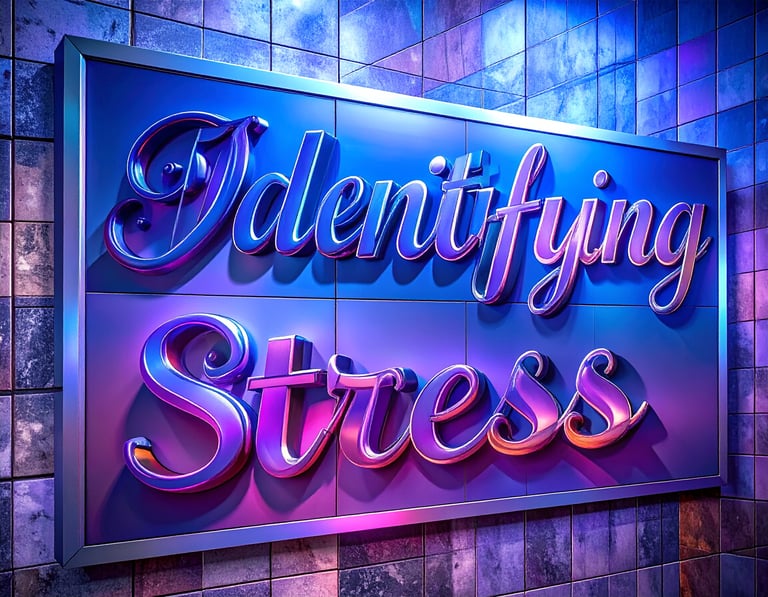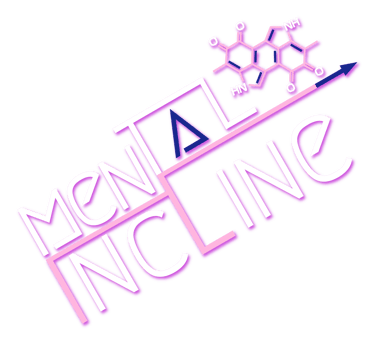Identifying Stress


Stress can show up in various forms. During our biggest moments or smallest ones, right in my our face or hidden in the depths of our subconscious, it takes the shape of all the things we give our attention to, as well as the things we tend to ignore.
You may be thinking “How can stress be in all these different places at once?” Well, I’ve put together a list to help us better understand, identify, and alleviate stress as it shows up in our everyday activities.
Here are a few categorized stressors and their impacts on the body:
Physical
“Energy is meant to flow.”
Occasionally we may notice a little pain in our muscles and joints. And in these areas of pain are, lumps, or as we like to call them "knots". These "knots" are nothing more than an accumulation of stale and stagnant energy. The longer this energy stays stagnant, the more it causes us to become lethargic and less active. Now, the body has to work extra hard to move through these stress points just to perform normal daily functions.
Physical stressors that affect the body and include:
injury
illness
fatigue
poor nutrition
lack of exercise
physical overexertion (too much exercise)
The most obvious solution would be to rest, but also, never overlook the benefits of stretching and healthy eating habits. Get active, move around! Have a great workout and follow it up with proper nutrition. At the end of the day, the body would have acquired what it needed and be ready to go into the next day with less resistance and more flow.
Emotional
“It happened. Now what?”
Emotional stressors relate to our feelings and our mental health. It’s human nature to live through emotions such as happiness, excitement, or even sadness. It’s also human nature to form opinions based on our feelings.
Where the stress creeps in is when we allow external factors to interfere with our internal emotions, when it should be the other way around. This is not to say that the outside world should not affect us, it should, but even though we are affected, it’s our internal reaction that creates the true outcome. When we become wrapped up in confronting the “problem”, our emotional state is thrown off balance as our attention is so heavily weighted towards something that is ultimately draining our energy.
This list can be considered both a cause or result of emotional stress:
anxiety
depression
grief
anger
fear
Life happens. And when life happens, it’s not always a matter of “keep your head up” or “stay strong”… sometimes it’s really just as simple as, life happens. Regardless of if we wanted something to happen or not, it’s an experience that we got to live through and learn from and progress through life’s journey. You might not have enjoyed it, or you could have loved it… the point is, it happened. Now what?
Let’s try to incorporate this thought the next time we run into a problem that warrants a reaction or resolution. “It happened. Now what?” But, say it with a calmness that will create space for a solution to actually form.
Personal
“Know who you are and be that”
As if external factors weren't enough, we just have to add to the mix. It wouldn’t be right if we didn’t stress ourselves out. Creating future scenarios out of thin air, dwelling on moments that have already passed… this list can get long but we’re going to keep it simple, as not to stress us out with more over-thinking.
perfectionism
self-criticism
lack of self-care
unrealistic expectations
unresolved past traumas
Let’s take a deeper dive into self-criticism. The true definition is: An evaluation of your own individual qualities and assets. But, if we’re being realistic that self-evaluation is based heavily on social consensus. We’re putting our opinions of ourselves up against the assumed opinions of others and coming up with a botched conclusion. Where our internal selves wish to flourish and be great, we have placed a limitation so that we can fit in.
When we are not aligned with our true nature, it weighs heavily on our spirit. Weight = Stress .
Moral of the story,
“Know who you are and be that.”
Conclusion
“Pay attention , your body is always communicating with you.”
Stress is an unavoidable aspect of life, but understanding where it stems from and what it looks like can significantly help in managing it effectively.
Being aware and taking proactive measures are extremely important. Get in tune with yourself. Become present in those conversations the body is having to catch on to the signals when they show up to warn you. Take note of what’s happening around you, and your emotions towards the setting.
Let's work to get on one accord with our internal and external selves, and team up to face life’s everyday stressors with a new approach.
